Drink coffee listen to the story of Starbucks Kenya coffee beans and African elephants characteristics of Kenyan coffee beans
Among the 13 Starbucks coffee beans, the Kenyan coffee beans in orange packaging are the most impressive because of the simple and honest African elephant moving slowly on the package. one is that the coffee beans show full, solid acidity and caramel sweetness after being moderately roasted.
The implication of Starbucks Kenya Coffee beans Elephant
The elephant on the package belongs to the African elephant. Different from Asian elephants, African elephants live in the harsh environment of the African prairie for a long time, and their simple and honest appearance hides their inner wildness. Many people will describe the flavor of Kenyan coffee beans as African elephants: as thick as African elephants but wild! Qianjie believes that it is no exaggeration at all. Kenyan coffee beans are characterized by representative acidity, while Yu Yun brings out a soft caramel sweetness, which has been talked about in the coffee industry.
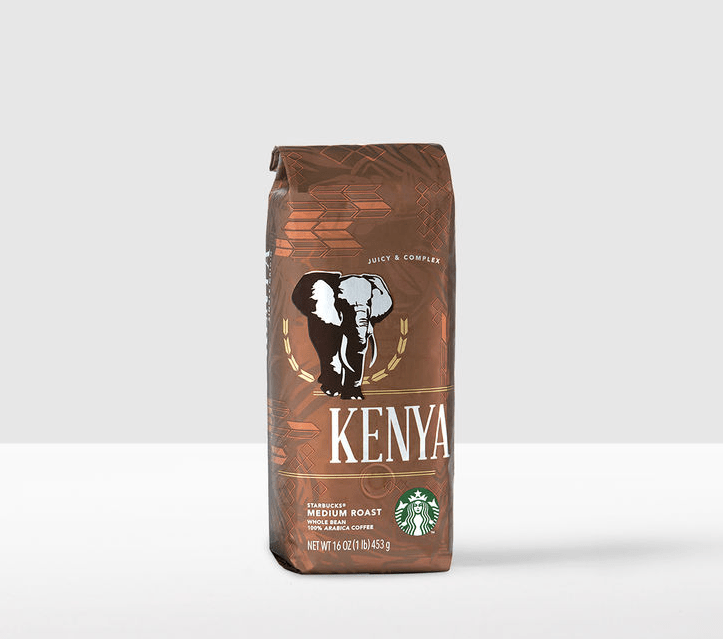
Coffee cultivation in Kenya
Kenya, located in eastern Africa and across the equator, in addition to a large number of wildlife, high-altitude geography and savanna climate have brought "God's blessing" to coffee cultivation. At the same time, volcanic soil brings more mineral nutrients to coffee trees. There are more phosphate minerals in Kenyan volcanic soil than in other parts of Africa, and phosphoric acid affects the flavor of this coffee. Coffee beans from all over Kenya have a unique berry acidity.
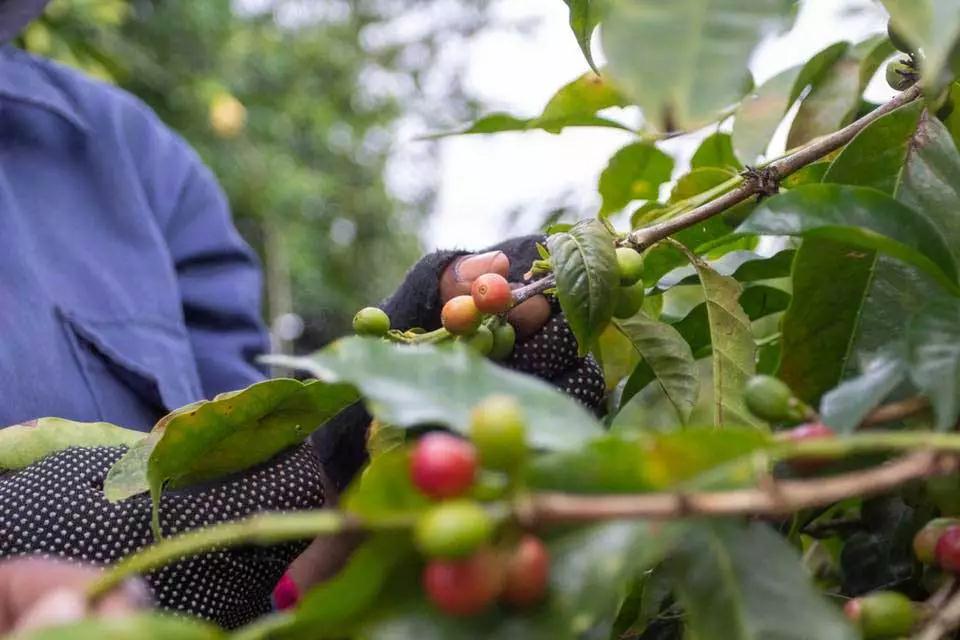
Kenyan coffee varieties
SL28 and SL34 are mainly grown in Kenya, and of course there are others, such as Ruiru11 and Batian. SL28 belongs to the bourbon gene, and the bean shape looks similar to the round and thick shape of the bourbon variety. The variety was tested separately in the front street, and its flavor has a complex and changeable acidity and great sweetness. SL34 belongs to the iron pickup gene, the bean shape looks slender and oval, and the variety is tested separately in Qianjie, which has clean acidity and high sweetness.

Kenyan coffee flavor
In order to retain the full and solid acidity of Kenyan coffee beans, medium-to-medium roasting is generally used. On the other hand, the aa coffee beans sold at the Asaria processing plant in Kenya on Qianjie are medium-and light-roasted, with the sour aroma of small tomatoes and the acidity of plum on the entrance, with a clean and full juicy taste and a sweet finish of caramel.
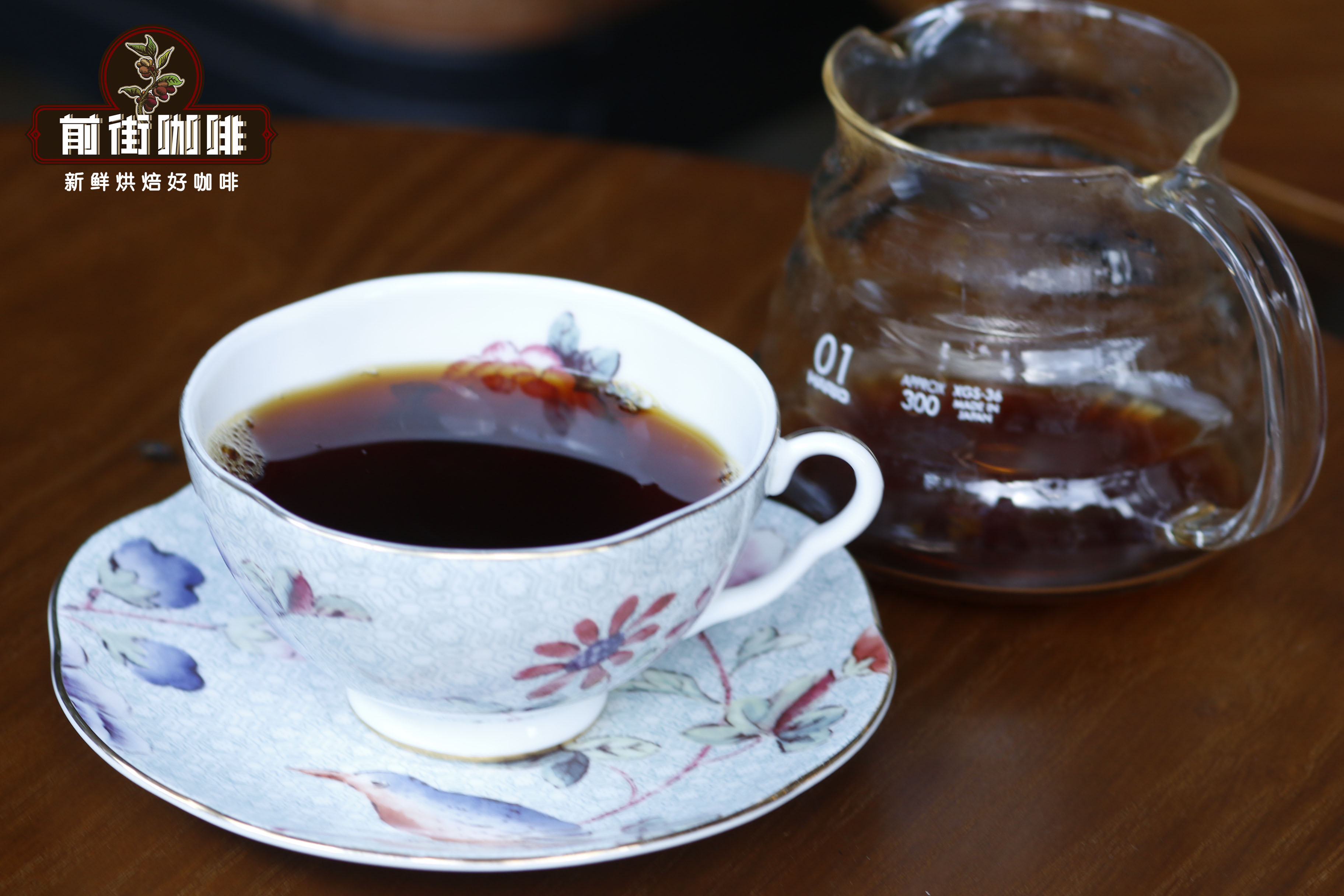
What are Kenyan AA coffee beans?
Kenya AA is the classification of Kenyan coffee beans, which is screened by a standard sieve and graded by the size of the coffee fruit. The size of AA coffee fruit is 17-18 mesh (size unit). It is currently the highest level in the official grading system. Is that AA grade coffee beans must be delicious? Not necessarily, the flavor difference of coffee beans comes from the soil, altitude, climate and other factors. AA coffee beans are not necessarily the best to drink, but the cleanliness will be better.
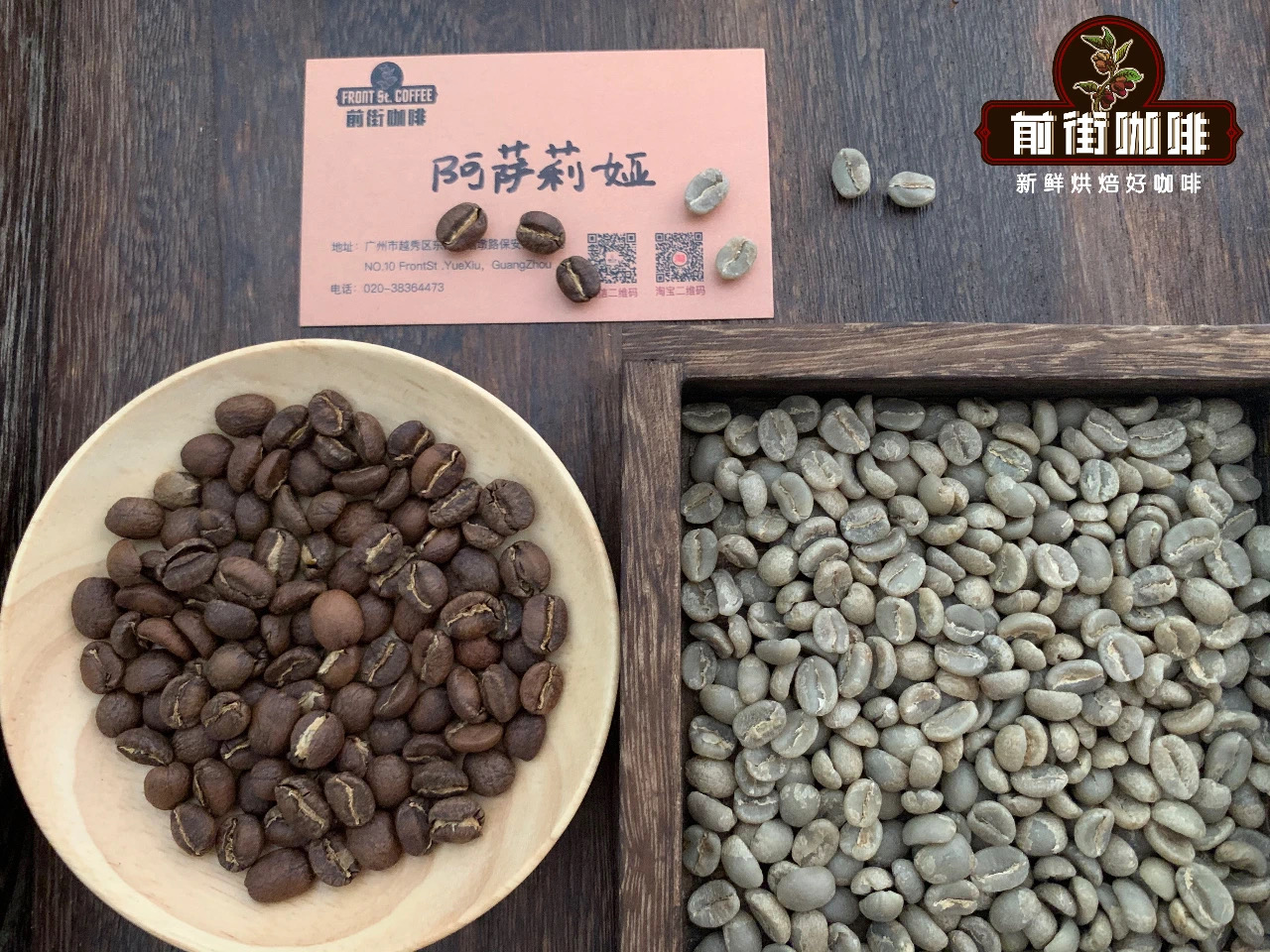
Professional coffee knowledge exchange more coffee bean information please follow the coffee workshop (Wechat official account cafe_style) more boutique coffee beans please add private Wechat Qianjie coffee, WeChat: kaixinguoguo0925
Important Notice :
前街咖啡 FrontStreet Coffee has moved to new addredd:
FrontStreet Coffee Address: 315,Donghua East Road,GuangZhou
Tel:020 38364473
- Prev
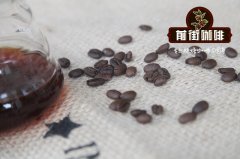
The Story of Kenya Coffee beans Kenya AA are uncertified Fairtrade coffee beans
Professional coffee knowledge exchange more coffee bean information Please follow the coffee workshop (Wechat official account cafe_style) recently there are several regular customers who are very happy to know that we are selling Fairtrade beans! However, with regard to Fairtrade beans, what we pursue is the imprint of the trademark or the pursuit of the spirit of fair care. Generally speaking, it is relatively hot in the market
- Next
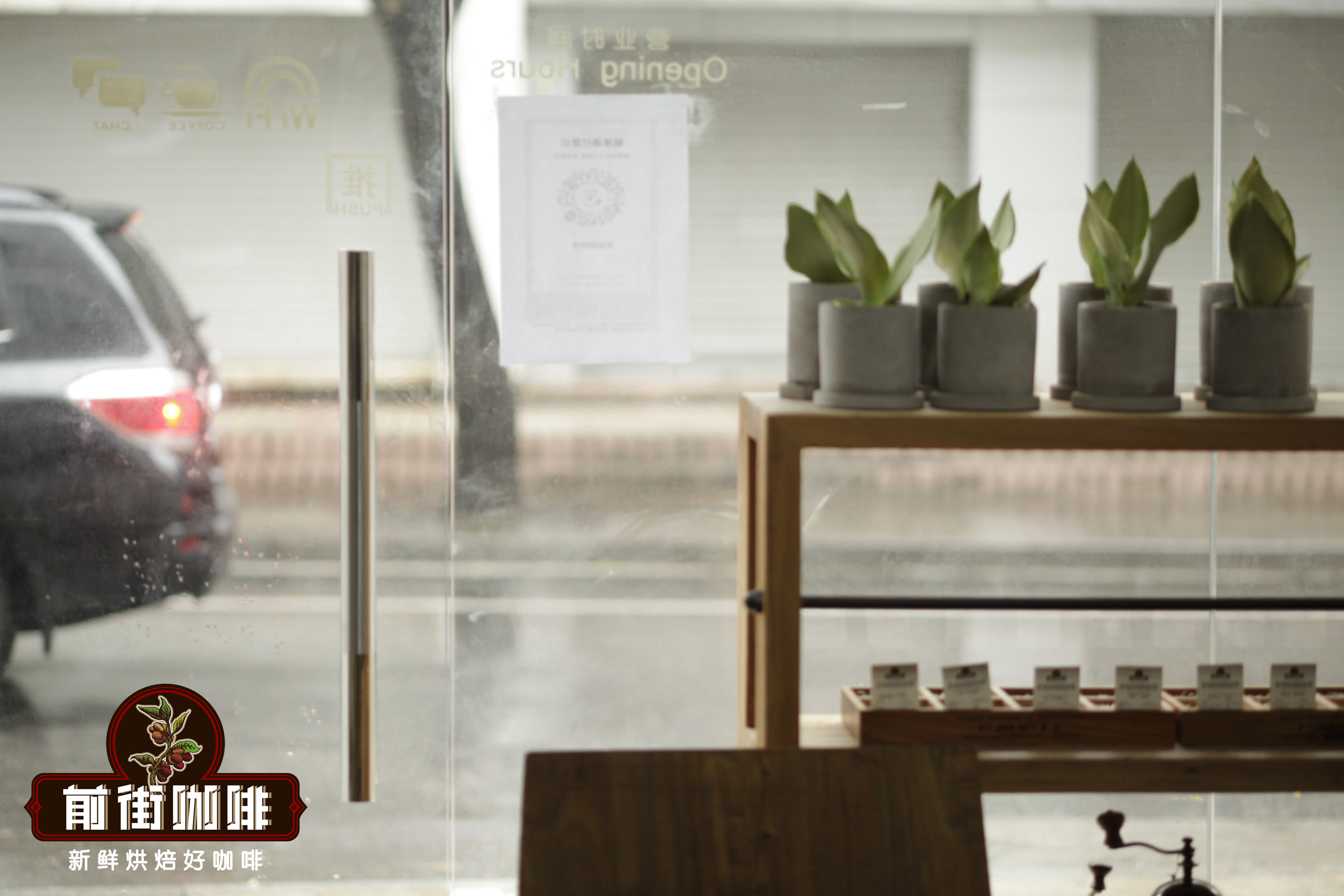
The story about the characteristics of Starbucks Kenyan coffee beans introduces how Kenyan AA coffee beans taste good.
Professional coffee knowledge exchange more coffee bean information Please pay attention to the coffee workshop (Wechat official account cafe_style) influenced by the British colonization, Kenyans love coffee, in Kenyan restaurants, drinks have to pay extra, but coffee is free. The history of Kenyan coffee can be traced back to the end of the 19th century
Related
- Detailed explanation of Jadeite planting Land in Panamanian Jadeite Manor introduction to the grading system of Jadeite competitive bidding, Red bid, Green bid and Rose Summer
- Story of Coffee planting in Brenka region of Costa Rica Stonehenge Manor anaerobic heavy honey treatment of flavor mouth
- What's on the barrel of Blue Mountain Coffee beans?
- Can American coffee also pull flowers? How to use hot American style to pull out a good-looking pattern?
- Can you make a cold extract with coffee beans? What is the right proportion for cold-extracted coffee formula?
- Indonesian PWN Gold Mandrine Coffee Origin Features Flavor How to Chong? Mandolin coffee is American.
- A brief introduction to the flavor characteristics of Brazilian yellow bourbon coffee beans
- What is the effect of different water quality on the flavor of cold-extracted coffee? What kind of water is best for brewing coffee?
- Why do you think of Rose Summer whenever you mention Panamanian coffee?
- Introduction to the characteristics of authentic blue mountain coffee bean producing areas? What is the CIB Coffee Authority in Jamaica?

